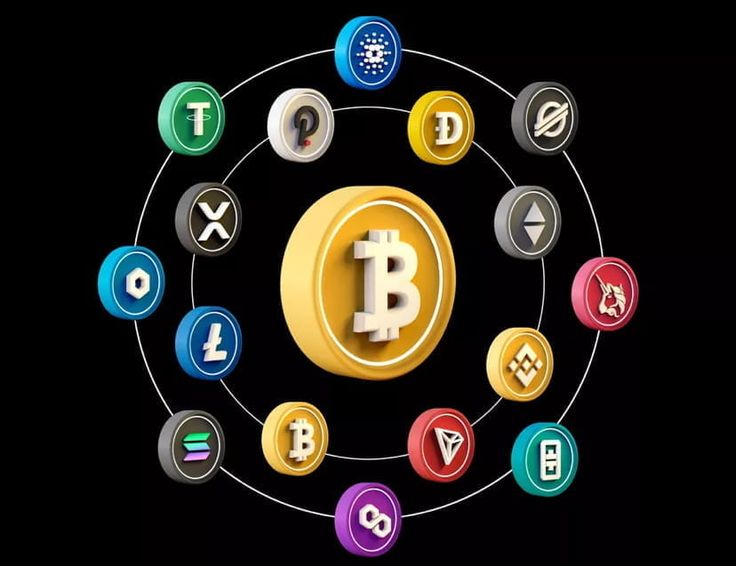The way we think about money is constantly evolving. From physical cash to online banking, and then to digital payments through apps, our financial lives are always adapting. Now, there’s another fascinating frontier that’s captured global attention: cryptocurrency. You’ve likely heard the term, seen headlines about its rapid changes, and perhaps wondered what it all means.
If the world of digital money feels like a maze of unfamiliar terms and daunting possibilities, you’re certainly not alone. The truth is, understanding this rapidly evolving space isn’t just for tech gurus or Wall Street experts. It’s for anyone curious about what’s next in finance, especially young adults like you ready to truly master their financial future.

What Exactly Is Cryptocurrency?
At its heart, cryptocurrency is simply digital money. But here’s the crucial difference from the money in your bank account: it’s decentralized. This means no single bank, government, or company controls it. Instead, it operates on a vast computer network spread across the world. It’s like a traditional money has a central bank that prints it and keeps records.
Cryptocurrency uses something called blockchain, which is like a public, secure, and unchangeable digital record book. Every time a transaction happens, it’s added to this record, and because copies are held by many different computers, it’s incredibly difficult to tamper with. This makes digital currencies secure and transparent, allowing people to send value globally without needing traditional banks as middlemen.
Why the Buzz? The Potential of Digital Currencies
So, why has cryptocurrency gained so much attention? Part of it is the potential for rapid growth; some digital currencies have seen incredible value increases, which naturally draws interest. Beyond just financial returns, many are drawn to its innovative technology. It represents a new way of handling transactions and data, pushing the boundaries of what’s possible online.
For some, it offers a pathway to financial inclusion, providing financial services to individuals in regions where traditional banking might be limited or inaccessible. Ultimately, a significant draw is the idea of having more direct control over your own money, free from central authority. It’s about empowering individuals in the digital age.
How It Works: The Simple Process of Digital Transactions
Understanding the basic process of how digital currencies operate will build your confidence. As mentioned, they primarily function on a blockchain – that secure, shared digital ledger. When you want to send crypto, you’re essentially sending a record of a transaction to this ledger.
To interact with these digital currencies, you’ll need a crypto wallet. Think of a wallet not as a physical place where money sits, but as a digital tool that holds the keys to your digital assets on the blockchain. These keys are what allow you to access and move your cryptocurrency. There are “hot” wallets (connected to the internet, like apps on your phone or computer) and “cold” wallets (physical devices, offline). For beginners, a reputable exchange’s integrated wallet is often the easiest starting point.

To actually buy or sell cryptocurrency, you’ll use a crypto exchange. These are online platforms where you can convert your traditional money (like dollars or euros) into various digital currencies, and vice-versa. They act as marketplaces, connecting buyers and sellers from around the world, much like a stock exchange, but for digital assets. When you send cryptocurrency, your transaction is broadcast to the network, verified by other computers, and then added to the blockchain, making the transfer complete.
How to Get Started Safely: Your First Steps into Crypto
Before you even think about buying your first digital currency, it’s vital to talk about safety. This isn’t just another investment, and approaching it with caution is key. The most important thing to understand is volatility. Cryptocurrency prices can swing wildly, much more rapidly and unpredictably than stocks or other traditional investments. What’s up 20% today could be down 30% tomorrow.
Because of this, the golden rule in Crypto is to invest only what you can comfortably afford to lose. You should not use this money for your rent, groceries, or even that crucial emergency fund you’ve diligently built. Instead, consider it money you’re prepared to see disappear entirely without impacting your financial stability. Just as we stressed the importance of a solid financial foundation when we discussed investing for beginners and building passive income streams, your core finances should always be secure before venturing into this more speculative arena.
Finally, remember that research is your superpower. The Crypto world is full of hype and misinformation. Don’t let social media or a friend’s advice be your only source. Dig deep, understand what you’re buying, and question everything.

Now, lets take your first controlled steps into the world of digital currencies.
- Choose a Reputable Exchange: This is your gateway. Look for exchanges that are well-known, have strong security features (like insurance on certain deposits), offer good customer support, and are easy for beginners to use. Do a quick search for reviews and ensure they operate legally where you live.
- Start Small: Seriously, begin with a very small amount – something you truly won’t miss if it goes to zero. This allows you to learn the ropes, understand the technology, and experience the market’s ups and downs without high stakes. It’s a learning investment, not a get-rich-quick scheme.
- Learn About Key Cryptocurrencies: Instead of jumping into obscure coins, begin with the most established ones like Bitcoin and Ethereum. They generally boast larger communities and more liquidity, and we consider them more foundational, though they remain subject to volatility. Understand their purpose and technology before considering others.

- Set Up Strong Security: Your digital assets are your responsibility. Always use strong, unique passwords for your exchange accounts and enable two-factor authentication (2FA). This adds an extra layer of security, making it much harder for unauthorized access. Be very careful about sharing any personal or wallet information online.
- Embrace Continuous Learning: The world of digital currencies changes incredibly fast. Stay curious, read reliable news sources, and understand new developments. The more you learn, the safer and smarter your decisions will be in this dynamic space.
Common Crypto Mistakes for Beginners to Avoid
Entering the cryptocurrency space can be exciting, but it’s also ripe with potential pitfalls. Being aware of these common mistakes will help you navigate more safely:
- FOMO (Fear of Missing Out): Don’t buy a cryptocurrency just because everyone on social media is talking about it and its price is soaring. Emotional decisions often lead to buying at the peak and losing money. Stick to your research and plan.
- FUD (Fear, Uncertainty, Doubt): Conversely, don’t panic sell all your holdings during a price dip just because of negative news or online fear-mongering. The market is volatile; dips are normal, but panicking can lock in losses.
- Investing in Unknown Coins: Avoid putting significant money into highly speculative coins that have no clear purpose, a small community, or seem like obvious scams. Stick to reputable projects, especially when starting.
- Poor Security Habits: Losing your private keys (the secret codes to your wallet), falling for phishing scams (fake websites asking for your login), or using weak passwords can lead to total loss of your assets. Security is paramount.
- Not Understanding Taxes: Just like traditional investments, gains from cryptocurrency are often taxable. Understand your local tax laws and keep good records of your transactions for future reference.
The Future of Cryptocurrency
Cryptocurrency is more than just a new way to invest; it’s part of a broader movement towards decentralized finance (DeFi) and new digital ownership (like NFTs). While these concepts might sound complex now, understanding the basics of digital currencies is your first step into this evolving future. It’s about empowering yourself with knowledge in a rapidly changing world, and taking more control over your financial journey.
Just as you’ve started making money work for you through investing and passive income, understanding digital currencies is another layer to building a robust and modern financial life. If you have questions that still linger? Share your thoughts in the comments below – we’re building a community of financially empowered individuals!


